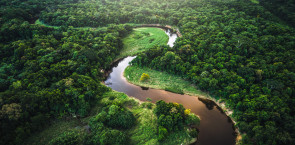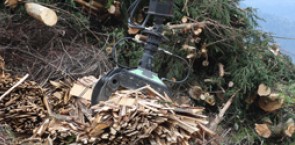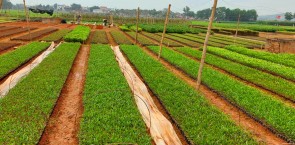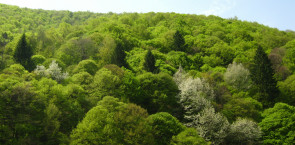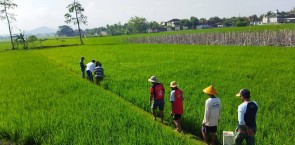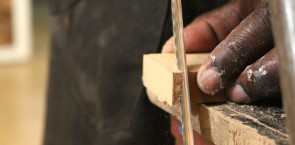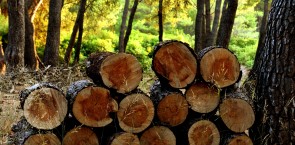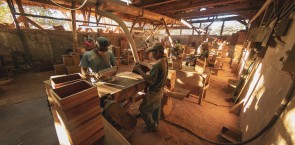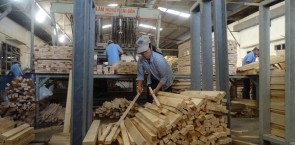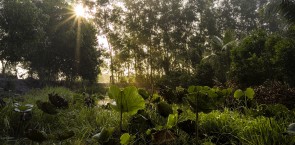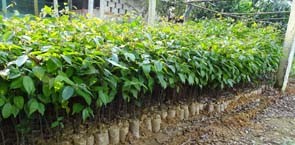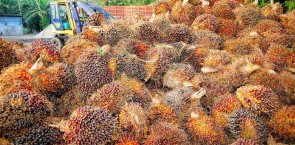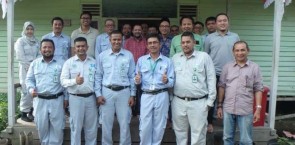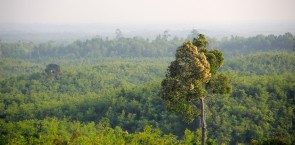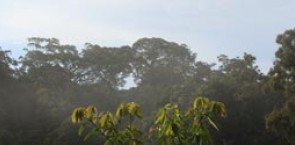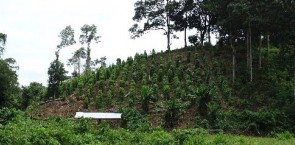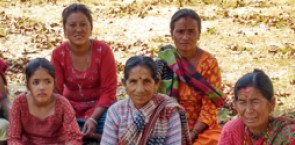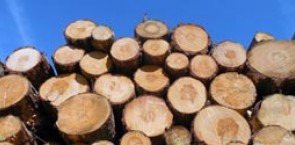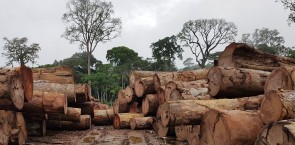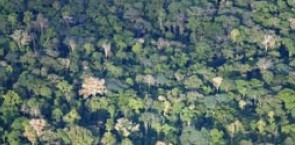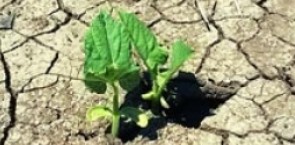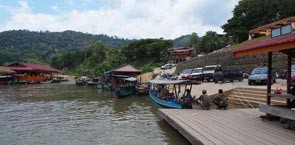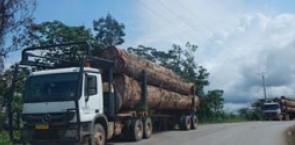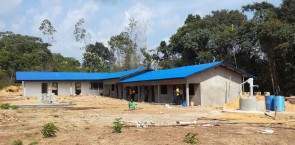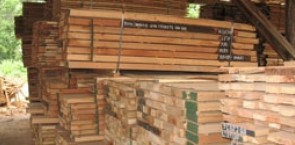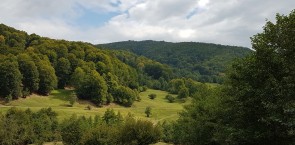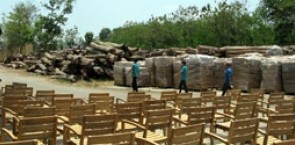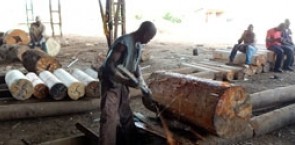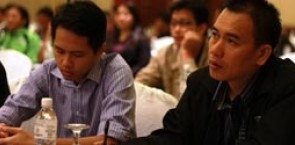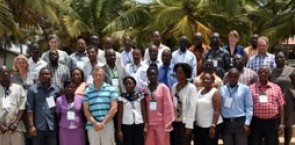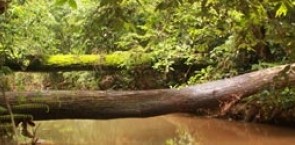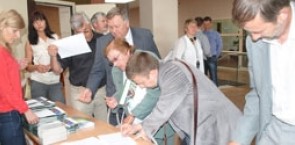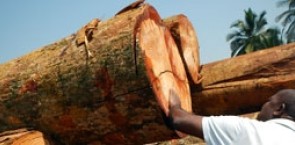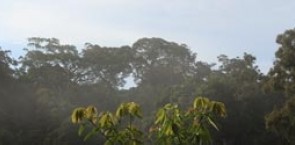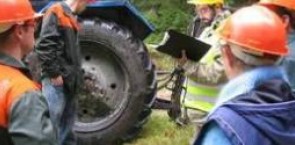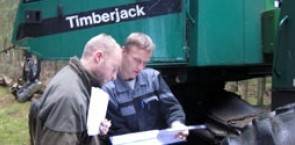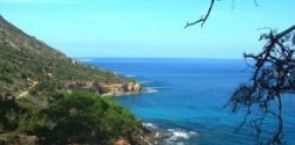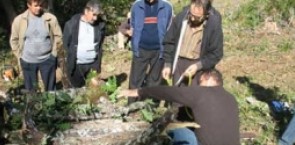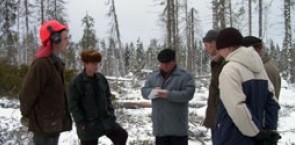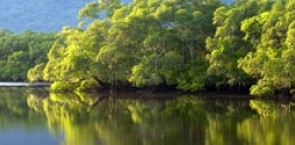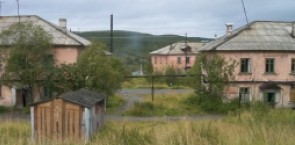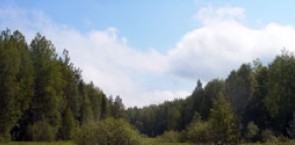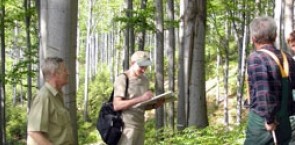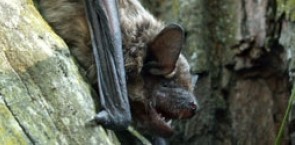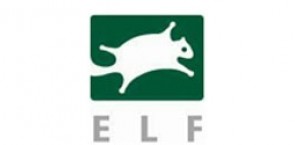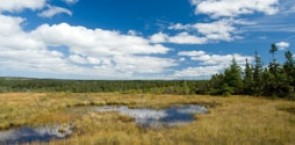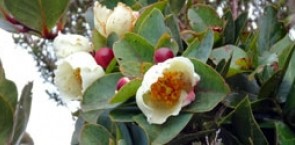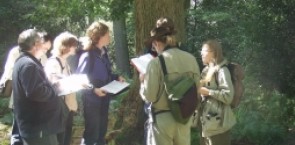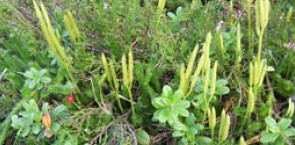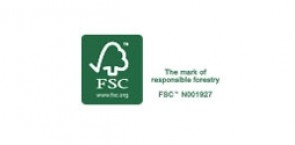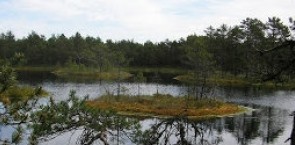Deforestation is the primarily result of the expansion of agricultural land for forest risk commodities (FRCs) such as cattle, wood, palm oil, soy, cocoa, coffee and rubber. These FRCs play a significant role in driving deforestation in tropical countries and the European Union (EU). The EU is the second-largest importer of commodity-driven deforestation and is responsible for 16% of the global embedded deforestation and substantially contributing to climate change.
Forest ecosystems are under intense pressure from our rising population and its hunger for more land and resources. Globally, we are losing about 4.7 million hectares of tropical forest every year, often to make space for agricultural commodities (decadeonrestoration.org). Forest landscape restoration is a critical strategy for tackling this issue, including global food security, access to clean water, soil erosion, climate change, loss of biodiversity, and desertification.
Five national risk assessments were developed to evaluate if biomass is produced in accordance to the SBP Sustainable Feedstock Standard. The assessments were carried out in five different countries, namely, Lithuania, Estonia, Latvia, Denmark and Portugal.
Forests are important in the global carbon cycle, carbon sequestration and storage. Although Vietnam increases in overall forest cover, there has been a reduction in both total hectares of natural forests and forest quality.
The SMURF project aims to empower a multitude of beneficiaries. At its core are small forest owners, over 16 million individuals who will gain access to new tools, knowledge, and support structures to manage their land sustainably.
Rice feeds half of the world’s population on a daily basis, but it is also an essential driver of global warming. It constitutes around 2.5% of all global human-induced GHG emissions, so its climate footprint is comparable to that of international aviation.
Preferred by Nature delivered a 3-days workshop to build the capacity of Rwanda’s timber actors on timber legality and certifications. The training program was developed to introduce the concept of timber legality and certifications to Rwanda’s timber actors, including furniture and construction companies, trade industry associations, and public administration officials.
Preferred by Nature was contracted by FAO to support the development of 24 country profiles. This database will benefit a variety of stakeholders, such as legislators, policy makers, law enforcement officers, private sectors, and civil society.
The Gesellschaft für Internationale Zusammenarbeit (GIZ) GmbH has commissioned Preferred by Nature (formerly known as NEPCon) to provide background analyses of timber trade for ten main supplier countries to Vietnam.
The EU Timber Regulation was implemented in 2013, but many companies in the EU are either not aware of the regulation and/or how to comply with it. This project funded by EU LIFE will focus on raising the awareness, offer training in how to comply with the EUTR, collect risk information for the companies to implement in their due diligence systems and optimize the tools and access to the risk information.
Preferred by Nature has categorized Russia as a High-Risk Country with risks related to a number of areas including legal rights to harvest, taxes and fees, timber harvesting activities and trade and transport being just a few examples. This region-based Risk Assessment tool will save a lot of time for Danish timber importers in sourcing legal timber from Russia.
The Gesellschaft für Internationale Zusammenarbeit (GIZ) GmbH has commissioned Preferred by Nature (formerly known as NEPCon) to provide background analyses of timber trade for ten main supplier countries to Vietnam.
Preferred by Nature (formerly known as NEPCon) had assisted the HAWA DDS team in developing the platform, supporting the seven principles of the HAWA DDS system: confidentiality, transparency, truthfulness & accuracy, impartiality & fairness, effectiveness & efficiency, independent monitoring, and voluntary approach.
The project strives to support sustainable livelihoods of 6,000 poor and low income rural farmers in the Quang Tri province of Vietnam, and to improve access to affordable and clean energy efficiency solutions for 2,000 households as well as supporting a sustainable forest resource base and mitigating carbon emissions.
The aim of this project was to develop online capacity building tools to help palm oil companies in Indonesia that were either legally required or interested in voluntary reporting of their sustainability related practices.
The purpose of this project was to test the auditability of the Indonesia National Forest Stewardship. The field test was conducted in PT Wana Subur Lestari in September 2018. Various documents were reviewed, a wide range of sites were visited, many interviews were completed and the communities which may be impacted by this standard were consulted.
The aim of this project was to foster private and public engagement in forest sector governance and legal forest management in the Mekong Subregion, to support the creation of better opportunities for employment and income for people and communities that rely on forests.
The Mekong region’s forest cover has decreased over recent years, jeopardising the livelihoods of forest-dependent communities. This project seeks to empower local and national Non-State Actors (NSAs), including forest-dependent communities and their networks, to assess and monitor forest landscape governance.
Meeting the due diligence market legality requirements of the EU Timber regulation (EUTR) has been a challenge for timber traders EU-wide. For many, notably small to medium-sized enterprises (SMEs), it still is. But there’s help at hand with the SME training Project funded by the LIFE Programme under the European Commission. Providing free education, tools and risk data, it helps SMEs make due diligence less a challenge, more the standard way of doing business – even a business opportunity.
The project focused on "real life" forest planning, management and land use operations in six EU member states: Sweden, Ireland, Poland, Spain, Austria and Hungary.
Due to continuing problems of deforestation and forest degradation, there is a need to manage forests and the production of palm oil commodities in a sustainable manner. This project focused on developing a business case study for commodities certification, with the expectations that it would encourage the uptake of sustainability certification.
We conducted an analysis of existing practices that could be applied to FSC Forest Management certification in order to ensure that the FSC system is accessible to communities.
This project prepared small and medium sized enterprises (SMEs) to comply with the chain of custody requirements under the Sabah Timber Legality Assurance System. The project provided capacity building to 35 SMEs including provision of training, checklists and system development.
The general objective of the Field Testing was to assess the applicability and enforceability of the Legality Definition´s requirements and related verification mechanisms set up in the Timber Legality Assurance System (TLAS), ahead of the initialing of the VPA. This was also an opportunity to make concrete recommendations where improvements of the TLAS could be relevant.
The overall aim of this project was helping to build and improve forest governance and enhance the sustainable management of natural resources in the Republic of Congo, by conducting independent audits of the national timber legality verification system.
The aim of this project was to develop risk analyses for soy, palm oil and cattle, commodities that are known to be directly associated with forest degradation in developing countries. In addition to the risk analyses, the project also developed and made available user-friendly tools, so that industry members could strengthen their responsible sourcing of these commodities.
This project aimed to take the large amounts of forest legality-related information that have been generated by Voluntary Partnership Agreement (VPA) processes as well as other sources, and present it in a format that was easily understood by, and freely available to, those who need it to evaluate risk in timber product supply chains.
The project focuses on promoting and fostering links among higher education institutions and businesses operating in the field of Marketing and Economics of Ecosystems and Biodiversity (MEEB). The project specifically targets four countries: Italy, Spain, England and Romania.
This project aimed to build capacity for stakeholders involved in the conservation of biodiversity in multiple-use forest landscapes in Sabah, Malaysia through different initiatives, such as a capacity assessment and training.
The cornerstones of this project were to raise the livelihoods of marginalised communities and, at the same time, contribute to the stabilisation of greenhouse gas emissions on a global scale.
The focus of this project is on the development of land management and business plans for three designated protected areas in Malaysia, to increase and improve the management of these to make it more sustainable.
This project tackled the Chain of Custody requirements for Filipino companies in the timber industry through capacity building. This made it possible for the companies to meet timber legality requirements and enabled them to export to Europe, Australia and USA.
The aim of the project was to strengthen forest management practices of Chinese companies operating in Gabon. This happened through free and completely confidential pre-assessments, which provided the Chinese companies with a gap analysis in connection to legality and FSC certification.
The project supported the preparation and implementation of an action plan to address the damage done to communities from the claimed illegal logging and sale of timber from Grand Bassa and Gbarpolu county in Liberia.
The aim of this project was to bring together technical, national and sub-regional experts from Central Africa, to facilitate an understanding of the technical and administrative aspects of the main instruments for promoting legality in Central Africa – FLEGT and forest certification schemes.
Preferred by Nature (formerly known as NEPCon) was hired for a consultancy assignment to evaluate and review the achievements of the project Tigers Alive IV implemented from 2003 to 2014. The project was implemented in the Belum-Temengor Forest Complex – an area of 3,546 square kilometre in Malaysia - and was a continuation of three previous Tigers Alive Projects.
On behalf of FSC, we produced risk analyses feeding into FSC's centralised Controlled Wood National Risk Assessments for 53 key timber producer countries.
This project involved the implementation of a survey in Russia, Ukraine, Belarus and Georgia. The survey measured changes in awareness about forest governance, such as illegal logging and corruption, among relevant stakeholders.
The overall aim of this project was to support sustainable forestry in Romania. It supported community and private forests in achieving sustainable forest management in NW, West and Central Romania through FSC Forest Management (FMs) and Chain of Custody (CoC) certification.
This project equipped small and medium sized businesses in Vietnam with know-how to meet EU FLEGT requirements and market demands for legal timber.
This project built the capacity of small and medium enterprises (SMEs) in Cameroon to trade in legal timber. This helped the SMEs to meet requirements arising from the EU FLEGT process and the EUTR.
The objective of the project was to elaborate and raise awareness about forest conversion issues in Southeast Asia through two country studies (Thailand and Cambodia), and present the study results at a stakeholder workshop.
In collaboration with the Sabah Foundation, we engaged in a unique project aiming to conserve some of the world’s most significant rainforests under threat
This project provided targeted training to build the capacity of five West African countries to meet FLEGT requirements.
To support the development of long term sustainability solutions of the forest and timber industry in Myanmar, Preferred by Nature (formerly known as NEPCon) was tasked to conduct a legality analysis of the forest sector in Myanmar.
The Sabah State Forestry Department in Malaysia initiated a number of forestry initiatives and programs to improve forest management and to support the timber industry to meet international market requirements. This project focused on and evaluation of Principles 5 and 6 of the Sabah Timber Legality Assurance System (TLAS).
On behalf of the European Timber Trade Federation (ETTF), Preferred by Nature (formerly known as NEPCon) organised a series of seminars on the EU Timber Regulation (EUTR) across Eastern Europe and Russia.
Jointly with FSC, we developed a global framework for assessing the risk of sourcing illegal timber from specific countries and regions.
This project was a study investigating if carbon standards and FSC Forest Management certification standards can be combined with field tests carried out in Vietnam.
FSC, ENFE and Preferred by Nature (formerly known as NEPCon) joined forces to develop an innovative concept to certify forestry contractors. The project is designed to reduce the costs and workload for small forest owners to achieve FSC certification and ultimately boost the area of forests certified in Europe.
In collaboration with the Danish Forestry Extension and the Danish Forest Contractors’ Association, NEPCon participated in a project that used contractor certification as a key tool to improve Danish smallholders’ access to certification.
This project assisted the Turkish Cypriot community to prepare for NATURA 2000 implementation in the northern part of Cyprus.
In this project, Preferred by Nature (formerly known as NEPCon) developed a tool to facilitate FSC and PEFC CoC certification. By integrating the requirements of the two standards into a single list and providing user guidance, companies are now facing a more straightforward job of complying with applicable rules.
The Global Forest Registry is an online tool for responsible timber sourcing: An interactive world map with information on the risk of sourcing unacceptable wood from more than 150 countries. The site is being improved for enhanced user experience and is continuously furnished with data.
This project aimed to support and empower Belarusian environmental NGOs, and Preferred by Nature (formerly known as NEPCon) assisted in preparing a strategy to encourage eco-labeling schemes through promoting active consumer choice and responsible industry approaches in Belarus.
This project developed the capacity of the forestry and NGO sectors in the Turkish Black Sea region.
This project provided training on sustainable forest management for 400 private forest owners, managers and forestry sector employees.
Experts from Preferred by Nature (formerly known as NEPCon) participated in a project developing efficient tools for verification of legal wood in Russia. The project was implemented by WWF in collaboration with the Russian Federal Forest Agency and four pilot forest operations.
Management planning and stakeholder consultation for the Nemunas River Basin formed an integral part of Lithuania's adaptation to the EU Water Framework Directive.
This project developed sustainable land use methods as well as marketing schemes that enabled the Kola Saami people to improve their livelihoods.
An analysis examining the adequacy of existing national legislation to control imports of illegal timber to Estonia.
This project facilitated the full-scale implementation of Natura 2000 in Lithuania. It included the development of management plans for 60 designated Natura 2000 sites.
This project prepared model management plans for 7 Natura 2000 sites spanning a variety of natural habitats and species protected by the EU Habitats and Birds Directives.
Review of Danish applications for funding through the EU LIFE-Nature instrument.
The overall aim of this project was to achieve FSC group certification of private forest owners on a broad scale in Latvia, Lithuania and Estonia. For this, Preferred by Nature (formerly known as NEPCon) developed a group certification toolkit for the Baltic countries.
The project supported strengthening of the capacity of Kola Saami organisations to establish sustainable livelihoods for the Saami people in the Kola Peninsula.
The aim of the project was to develop innovative market-based mechanisms that counteract illegal logging in Latvia, as one important step in the protection of biodiversity in Latvia’s forests.
Asssignments exploring and raising awareness of the value of grazing by wild animals as a nature management measure.
The project supported the national designation of Natura 2000 sites in Lithuania based on scientific criteria and public hearings.
Initiated by the Danish Parliament, this project developed guidelines to help institutions ensure that the timber they purchase is produced in a legal and sustainable manner.
Preferred by Nature (formerly known as NEPCon) participated in an environmental impact assessment of a windmill park at the Danish West coast.
This project increased the capacity of the Estonian Fund for Nature to act as a focal point for environmental NGOs using the Aarhus Convention in their work.
This project identified potential Natura 2000 peatland sites and involved the elaboration of management plans for six selected peatland areas in a stakeholder-based process. The project also developed educational materials on peatland ecology.
The project developed a book popularising the results of a ground-breaking qualitative ethnobotanical study conducted in the Malaysian state of Sarawak.
This project provided training and experience exchange among nature conservation professionals across Europe. The training covered biodiversity conservation in open natural areas as well as forest areas and veteran trees.
The project prepared, implemented and institutionalised a management plan for Maliau Basin in Sabah. The area, also known as “the Lost World”, is famous for its inaccessibility and pristine condition.
This project developed guidelines and criteria for selecting forest areas of high importance and conducted woodland nature value assessments across Estonia.
This project supported the alignment of national legislation, habitat classification and data handling in order to comply with EU nature conservation requirements, and supported Lithuania in the negotiations with the EU.
A Panda-prize project awarded by WWF-Denmark pioneering re-wilding in Denmark. We prepared an analysis of the possibilities to establish a national park in a Danish forest.
This project provided technical assistance to the Department of Nature Protection, Ministry of Environment in Estonia.
Throughout 1997, Preferred by Nature (formerly known as NEPCon) was responsible for coordinating the Secretariat of the Danish Working Group for elaboration of FSC guidelines for forest certification.
This project prepared a conservation plan for a military area and nature reserve in Estonia.
Our very first project produced operational guidelines for sustainable forestry in Denmark in a multi-stakeholder process. The guidelines later evolved into the Danish FSC Forest Management Standard.
Preferred by Nature (formerly known as NEPCon) has been contracted by the European Commission (EC) to carry out a study titled “Study on Certification and Verification Schemes in the Forest Sector and for Wood-based Products”.

